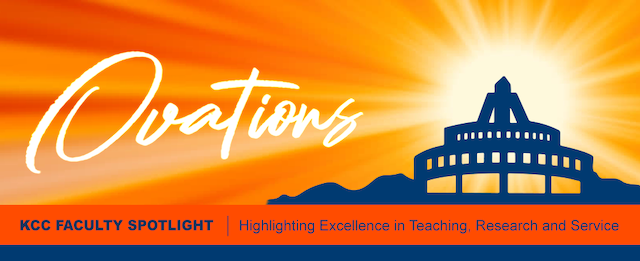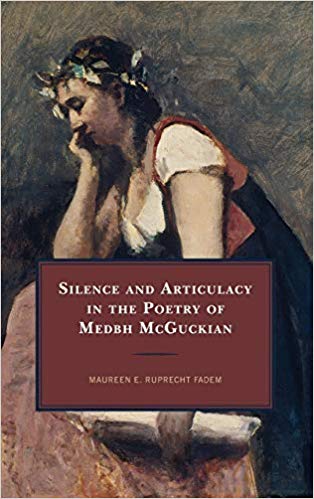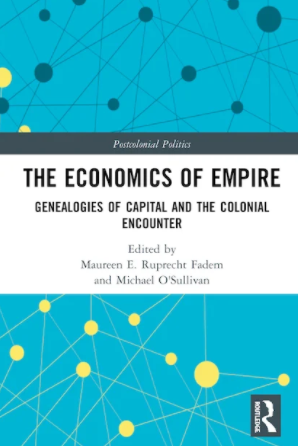Ovations


Maureen Fadem
Book Talk with Professor Maureen Fadem
Watch English Professor Maureen Fadem's recent talk on Toni Morrison’s Beloved, An Ethical Logic of Reparations, hosted by The Brooklyn Society for Ethical Culture. She is introduced by Art Professor Madeline Sorel. This talk was based on Professor Fadem’s book, Objects and Intertexts in Toni Morrison’s 'Beloved': The Case for Reparations.
Silence and Articulacy in the Poetry of Medbh McGuckian

Silence and Articulacy in the Poetry of Medbh McGuckian is an innovative contribution to the scholarship on Belfast poet, Medbh McGuckian. This book considers the entire oeuvre of this globally respected Irish woman writer, a member of the contemporary avant-garde with now fifteen (U.S. published) volumes and numerous individual publications. The author positions McGuckian’s oeuvre as political and historical poetry and offers a provocative new assessment of its crafted silences. This work argues that it is the muted character of McGuckian’s poems—a consequence of a defamiliarized language, the overwhelming sway of the image, and a profusion of intertextual quoting—that constitutes their agency and force. The silences are read as a response to the precarious positionality of poet and speaker at the site of “disaster” and the limits of articulacy. In line with Rukeyser’s notion of the life of poetry, the life of McGuckian's silences is located, Fadem argues, in the poems’ production, as revealed self-reflexively, and in their prolonged consumption. This oeuvre operates as a formidable counter-discourse by converting poetry's reception into a much protracted task that redistributes the temporal economy of poem and reader and disrupts the given structures of time, place, and the order of things.
Her book is published through Rowman & Littlefield and can be found HERE or on Amazon .
The Economics of Empire: Genealogies of Capital and the Colonial Encounter
The Economics of Empire: Genealogies of Capital and the Colonial Encounter by Maureen Fadem, is a multidisciplinary intervention into postcolonial theory that constructs and theorizes a political economy of empire.
Maureen has penned a comprehensive collection that "traces the financial genealogies associated with the colonial enterprise, the strategies of economic precarity, the pedigrees of capital, and the narratives of exploitation that underlay and determined the course of modern history. One of the first attempts to take this approach in postcolonial studies, the book seeks to sketch the commensal relation—a symbiotic "phoresy"—between capitalism and colonialism, reading them as linked structures that carried and sustained each other through and across the modern era."

The Economics of Empire will be an excellent resource for students and researchers of postcolonial studies, literature, history, sociology, economics, political science and international studies, among others.
Q & A with Maureen Fadem Q: What was your motivation for writing this book?
A: In my view and yet what is odd is that the field set up to study these matters — that is, to do the research and produce the knowledge of modern empire, the field of postcolonial studies (my primary field) — has hardly broached the subject. And this answers your question about the motivation to put this collection together, edit it, and also to compose the two pieces I contributed. One of those is a long'ish theoretical introduction in which I use the novel The Moonstone by Wilkie Collins as an object lesson to present this problem and to theorize how we can move forward with a much stronger emphasis on economics in postcolonial studies research. I explain, in other words, that there is only a small smattering of postcolonial criticism on that novel when in fact it is deeply embedded in relevant concerns and a novel we ought to have seen reams of such scholarship on! Problem being, we have not developed the hermeneutics in postcolonial studies that serve such a novel, those being ways of reading that intersect empire and capital and foreground economic and colonial questions at once. The book is making that case and offers twelve chapters by different authors as examples of how to do that.
Q: What do you feel distinguishes this work from what is already known about the colonialism/capitalism relationship?
A: When we look, say, at the scholarship on modern slavery, we see that only certain aspects get real attention — much of that research focuses on the violence committed against the bodies of slaves and the evils of slave masters, all obviously true. Precious little follows the money of slavery, however, both the money gained and the money lost in having been required to give over one's labor without compensation. Far too scant is our understanding, for example, of who built financial or industrial empires on the backs of slaves, where did that money go, who did it benefit and how.
My point is that, because of some of this unevenness, some of these blindnesses in the scholarly research, it is very likely that in many communities there is a greater lived, daily understanding about these under-studied connections and concerns than we would be capable of deriving through research into these matters. This has to change — in our research as scholars not only do we need, as I said to Routledge when I first pitched this book, to do a much better job allying our work with struggles for justice, we also need to ask and answer the hard questions of empire that we have so far been apparently unwilling to broach, at least not in a sustained way — looking at the full and sordid picture of slavery, looking at the fact that a university like Yale was founded on the basis of gemstones stolen from South Asia in the name of the British Empire.
Q: How do you feel about the outcome of this work and ways in which it can enrich students?
A: I think this work can enrich students as well as publishing scholars as well as the world at large by moving the research in postcolonial studies in new and critical directions.
For information on her book, visit HERE.
